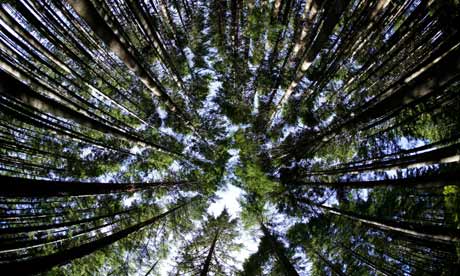
This is a novel unlike any other I have read. It begins with two perfect epigraphs, one from EM Forster and one from Elizabeth Bishop's poem "Questions of Travel", from which the novel takes its title. Forster's is mysteriously troubling: "Under cosmopolitanism, if it comes, we shall receive no help from the earth. Trees and meadows and mountains will only be a spectacle …"
Whereas Bishop's – taken from a poem that questions our need to travel even while celebrating it – is exhilarating:
"But surely it would have been a pity
not to have seen the trees along this road
really exaggerated in their beauty"
Questions of Travel is about uprootedness and travel, about tourism and flight from terror, about the trivial and the terrible. It has two main characters separated by time and space – Laura, born in Australia in the 1960s, and Ravi, born in Sri Lanka, first seen as a child in the 1970s. Laura's story opens with her twin brothers deciding to drown her in a swimming pool. She has a recurring dream of "silky blue all around her, pale blue overhead; she glided through silence blotched with gold". Ravi's opens with his family history dating back to the day when Captain Cook died in Kealakekua Bay in 1779, and "an Italian apothecary arrived in Galle on a ship registered in Rotterdam to the Dutch East India Company". We read in one and a half pages about Ravi, standing beside a decaying Edwardian sideboard on the back veranda, the day his father dies.
The story proceeds in a series of episodes – Laura's 1980s, Ravi's 1980s, over the years to Laura in 2004, Ravi in 2004. It is a story without a plot but with changing locations in both history and geography. It is hard for a reviewer to describe because it seems to proceed with an uncanny lightness, in glimpses and sudden shifts. De Kretser is a master storyteller and again and again prepares small – and large – shocks that explode tens of pages later, and cannot be given away. An early one comes when, having got to know Laura, we see her unexpectedly through her father's eyes, revealing his great regret that she has inherited his features and is ugly. The novel is also punctuated by trees – every episode has its different tree: beautiful, ugly, rooted or uprooted – and by dogs. It has a swelling rhythm, which is suddenly disturbed by terrible things, or disrupted by the absurd.
Laura, an art student who decides she is not good enough, becomes a traveller and a tourist. Ravi is enchanted by early screens and the internet. Laura settles for some time in London where she meets Theo Newman, son of a German refugee from the second world war, who has inherited his mother's elegantly furnished house and is filling it with objets trouvés – recliners abandoned in the street, "an orange portable TV on a marquetry escritoire which stood next to a telephone table with angled gilt legs and a handsome veneer". De Kretser is a great describer of the meaning of meaningless clutter – she loves redundant things such as tape recorders that are not antiques, just outdated. One of the narrative shocks is the juxtaposition of Theo's clutter with the paragraph about his mother's cousin Ernst, "toothless, rheumatic, twenty-eight years old. He had come to tell Anna that everyone in her family was dead: not only her mother and father and sisters, but the grandparents, the uncles, the second wives, the babies bayoneted first in front of their parents. Ernst said that the forest floor had moved for days."
This terrible forest floor is a part of de Kretser's pattern of trees – here found in history, elsewhere in the timeless world of tourism and geography. There is a mysterious scene where Laura and a Frenchman she has picked up in Strasbourg exchange stories about unexpected objects bulking outside a window or at the end of a street. Laura had glimpsed a cathedral that terrified her: "I had this awful feeling that I was looking at something that had gone wrong – the scene of a disaster." The Frenchman recalls being terrified by seeing a mountain very close to a window. Laura thinks later that the experiences were not comparable – one was about time, the other about place. The cathedral was misplaced history. The mountain was so close as to block the view from the window. Laura writes this down, but it is rejected by a travel editor. She has to learn to write conventional tales for a guide not unlike Lonely Planet.
It is not really possible to describe, in a short space, the originality and depth of this long and beautifully crafted book. It isn't easy to read because the reader is always in danger of missing something significant. It has an extraordinary ending. It persists in the mind long after the last page.

